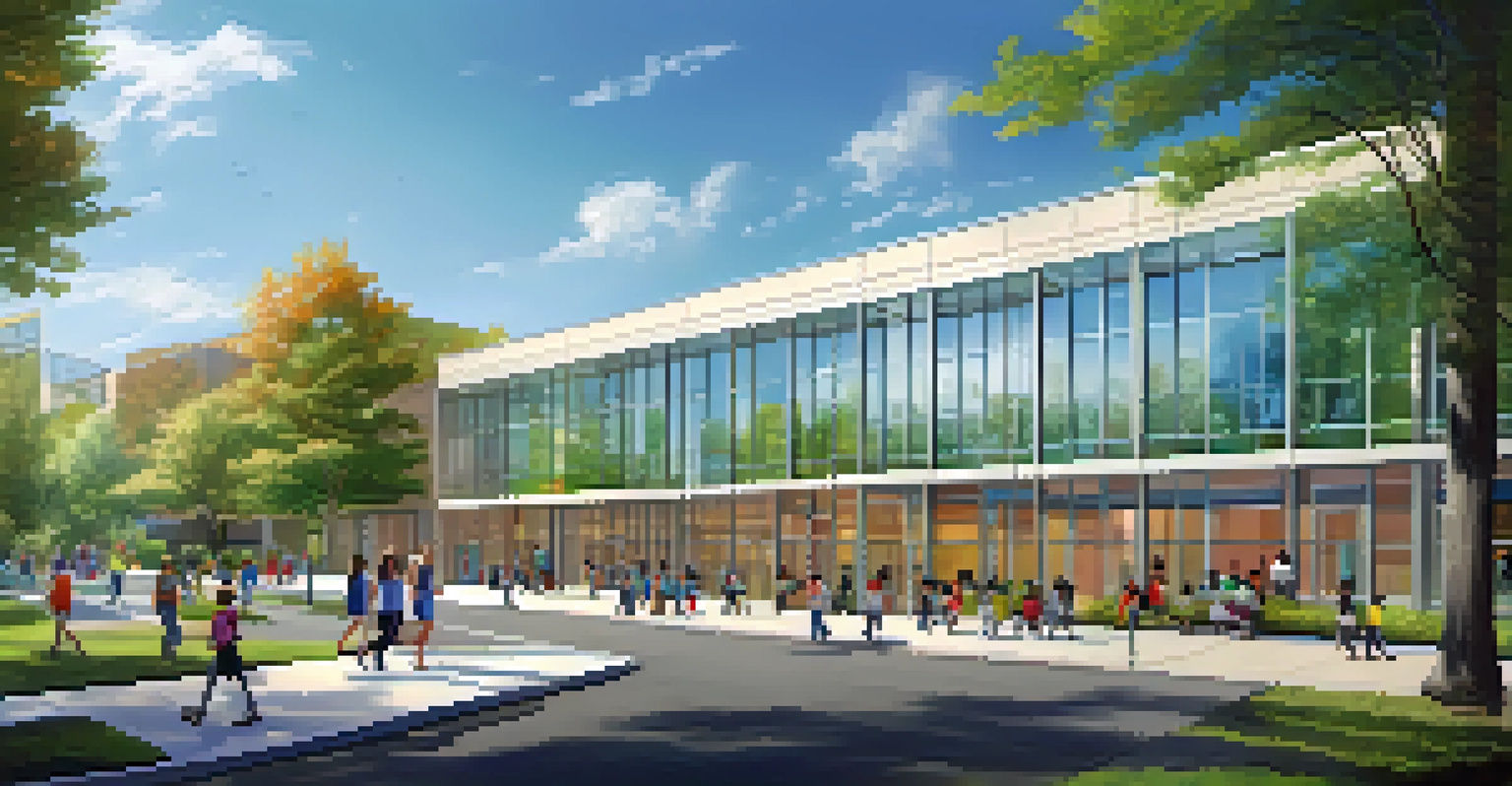The Role of Charter Schools in Tennessee Education

Understanding Charter Schools in Tennessee
Charter schools in Tennessee represent a unique educational option that operates independently from traditional public schools. These schools receive public funding but have more flexibility in their curriculum and operations. They aim to provide innovative learning environments to meet diverse student needs, often focusing on specific educational philosophies or themes.
Charter schools provide an alternative choice for parents and students who seek a different educational environment.
Established under state law, charter schools must adhere to certain accountability standards to ensure they meet educational goals. This allows them to tailor their programs while still being accountable for student performance. Parents and students can choose these schools based on their approach, which can lead to a more personalized education experience.
In Tennessee, charter schools have gained traction, particularly in urban areas like Memphis and Nashville. The growth of these institutions reflects a broader movement towards school choice, allowing families to select educational settings that best fit their child's needs.
The Benefits of Charter Schools
One of the main benefits of charter schools is their ability to foster innovation in teaching methods and curriculum design. By operating independently, they can experiment with different educational approaches that may not be feasible in traditional public schools. This flexibility can lead to improved student engagement and academic outcomes.

Additionally, charter schools often emphasize smaller class sizes, which allows for more individualized attention from teachers. This can be particularly beneficial for students who thrive in environments where they can receive focused guidance. Smaller classes can also promote a sense of community among students and staff.
Charter Schools Offer Flexibility
Charter schools in Tennessee operate independently, allowing for innovative curricula and teaching methods tailored to diverse student needs.
Moreover, many charter schools offer specialized programs, such as STEM (Science, Technology, Engineering, and Mathematics) or arts-focused curricula. These programs can provide students with unique opportunities to explore their interests and talents, potentially leading to greater motivation and success in their educational journeys.
Challenges Faced by Charter Schools
Despite their advantages, charter schools in Tennessee face a variety of challenges. One significant issue is the funding disparity between charter schools and traditional public schools. While charter schools receive public funds, they often do not receive the same level of financial support, which can limit their resources and capabilities.
Education is the most powerful weapon which you can use to change the world.
Additionally, the accountability measures placed on charter schools can be stringent, requiring them to demonstrate consistent academic performance. If a charter school fails to meet these standards, it risks closure, creating instability for students and families. This pressure can lead to high-stakes environments that may not always foster a positive learning atmosphere.
Furthermore, the rapid expansion of charter schools can create tension within the broader educational ecosystem. Traditional public schools may lose funding and student enrollment to charter schools, leading to concerns about equity and access to quality education for all students in the community.
The Role of Parents in Charter School Choice
Parents play a crucial role in the success of charter schools, as their active participation can significantly impact the school community. Many charter schools encourage parental involvement through volunteer opportunities and governance roles, fostering a sense of ownership and investment in the school's mission. This collaboration can create a positive culture that benefits students.
Moreover, parents are often the driving force behind the decision to choose a charter school over traditional options. They seek out educational settings that align with their values and expectations for their children's education. This informed choice can lead to higher satisfaction and engagement among families, contributing to a thriving school environment.
Parental Involvement is Crucial
Active parental participation in charter schools fosters a positive community culture and enhances educational outcomes for students.
Ultimately, the relationship between parents and charter schools can shape the educational experience for students. Supportive parents can advocate for their children's needs, helping schools address challenges and celebrate successes.
Charter Schools and Community Impact
Charter schools often aim to address specific community needs, which can lead to significant local impact. By focusing on the unique demographics and challenges of their neighborhoods, these schools can create tailored programs that resonate with students. This localized approach can improve student outcomes and foster community pride.
Additionally, charter schools can serve as hubs for community engagement, providing resources like after-school programs and adult education. They often collaborate with local organizations to support families, enhancing the overall well-being of the community. This connection can create a supportive network that benefits both students and their families.
However, the relationship between charter schools and their communities can be complex. While they can bring positive change, it's essential for these schools to remain engaged and responsive to community needs to ensure they contribute positively to the educational landscape.
Evaluating Charter School Performance
Assessing the effectiveness of charter schools in Tennessee involves examining various performance metrics, such as student test scores and graduation rates. Many studies indicate that charter schools can outperform traditional public schools in certain areas, particularly in urban settings. However, results can vary widely based on the school's mission, demographics, and management.
It's also important to consider qualitative measures, such as student and parent satisfaction. Surveys and feedback can provide valuable insights into the overall educational experience and help identify areas for improvement. These evaluations can guide future decisions about funding and support for charter schools.
Challenges Include Funding Disparities
Despite their benefits, charter schools face funding challenges and accountability pressures that can impact their stability and effectiveness.
Ultimately, the evaluation process should be comprehensive, taking into account both academic performance and community impact. Continuous assessment can help ensure that charter schools remain accountable and focused on their goal of providing high-quality education.
The Future of Charter Schools in Tennessee
Looking ahead, the future of charter schools in Tennessee will likely be shaped by ongoing debates about educational equity and funding. As more families explore school choice options, it's vital to ensure that all students have access to high-quality education, regardless of their circumstances. This may require changes in policy and funding structures to support both charter and traditional public schools.
Additionally, the role of technology in education will continue to evolve, impacting how charter schools deliver instruction. Online learning models and blended approaches may become more prevalent, allowing for greater flexibility and accessibility for students. This shift could enhance the educational landscape and provide new opportunities for charter schools to innovate.

As the conversation around education reform continues, charter schools will remain a significant part of the dialogue in Tennessee. By focusing on collaboration and community engagement, these schools can adapt to the changing educational environment and strive to meet the needs of all students.